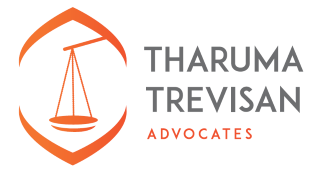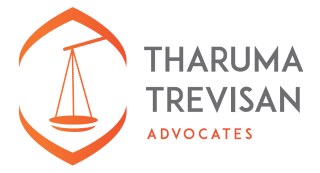
CASE BRIEF Seventh day Adventist Church (East Africa) Limited –Vs- the Ministry of Education and 3 others civil Appeal No. 172 of 2014
By Boaz Kaawe
1. FACTS:
1.1. The seventh day Adventist church had filed a petition to the High Court on the 25th September alleging that students who were its members in some eighteen named public schools in Kenya had had their freedom of worship protected under Article 27 and 37 of the Constitution violated.
1.2. The appellants instituted an action against the Minister of Education and the Attorney General, (the respondents) for a declaration that the matters enumerated in the appeal were in violation of the rights of Adventist students in the schools concerned, an order directing them to either promulgate regulations under section 19 of the Education Act prescribing the obligations of public schools to respect the rights of students under Article 32 of the constitution and section 26 of the Education Act and describing the manner in which the obligations were to be implemented and secured as well as setting up an administrative enforcement and complaint mechanism, or , in the alternative the Minister to be directed to issue, pursuant to his powers under section 27 of the Education Act, a directive to public schools requiring them to respect the rights of students under Article 32 of the constitution and section 26 of the Education Act.
2. BACKGROUND:
2.1. Prior to 2009/2010 an overwhelming majority of public schools in Kenya accommodated the religious practices of the church and allowed the Adventist students to worship and fellowship in keeping with their religious beliefs and practices.
2.2. They were permitted to observe the Sabbath between sunset on Friday to sunset on Saturday.
2.3. However, from 2001 onwards, a number of public schools had increasingly restricted and curtailed that freedom by requiring that Adventist students to attend compulsory Saturday classes, during which exams were sometimes taken and also asked to be involved in the general cleaning.
2.4. In some schools the students would only nominally be allowed to observe the Sabbath after classes, while in some instances the students would be compelled to sign an undertaking that they would attend all classes including the half day classes on Saturday.
2.5. Yet in other cases only Form one and two students would be allowed to keep the Sabbath and those in Form three and four were barred.
2.6. Students who failed to attend classes but chose to observe the Sabbath on Saturday would be suspended from school or asked to elect to either remain in the school; and attend all classes up to and including Saturday or leave the school; and these complaints were replicated through out the country, yet adherents of other Christian faiths whose days of worship fell on Sunday were given full opportunity and facilities to practice their faith in accordance with the tenets of their belief.
3. LAW APPLICABLE:
3.1. Article 27, 32, and 159(2) of the 2010 constitution of Kenya.
3.2. Sections 19, 26 of the Education Act No. 14 of 2013.
4. APPLICANT’S CASE:
4.1. That the Church holds certain beliefs derived from the Bible, one of which is the obligation to respect and observe the Sabbath.
4.2. That while some public schools respected religious practices of the Seventh Day Adventist students to observe the Sabbath, a good number did not.
4.3. That the schools concerned made it mandatory for the students to attend classes, write examinations and engage in cleaning duties on Saturday and those who missed such classes, duties, examinations and other chores would be suspended or asked to leave the school.
4.4. That this treatment was in contrast with that accorded to students of other faiths whose day of worship was on Sunday.
4.5. That the concerned students’ constitutional rights under Articles 27 and 32 of the constitution were violated.
4.6. That the learned Judge (Lenaola Isaac J as he then was) turned himself into a witness on behalf of the respondents by giving evidence of how SDA adherents drove themselves to Maxwell Church in Nairobi on Sunday after fuelling their vehicles for the mid morning worship to demonstrate that the limitations by the interested party were reasonable.
4.7. That there was no evidence that the Saturday classes had been part and parcel of Alliance High School since 1926.
4.8. That the learned judge made a mistake in implying that Sunday was a traditional day of rest for all Kenyans, ignoring the days of others who, like the Adventists were in the minority;
4.9. That the learned Judge erred by drawing a legally unmoored distinction between freedom to adopt a religion and freedom to manifest the religious belief and holding that the former freedom couldn’t be limited while the later could as no such distinction existed in the constitutional context of Article 32 or under any other provision or precedent.
4.10. That the learned Judge failed to apply the full text of Article 32(2) and the clear provisions of Article 6 of the General Assembly Declaration of All Forms of Intolerance and Discrimination Based on Religion or Belief there by arriving at a wrong conclusion.
4.11. That the learned Judge erred in holding that the students’ rights under Article 32 were subject to limitation in Article 24 even after concluding that there was no violation of their rights.
4.12. That although the learned Judge dutifully recited the “proportionality test”, he completely failed to apply it to the facts.
4.13. That without proof of the existence of any law limiting the right to worship, the learned Judge erroneously concluded that the limitation was reasonable and justified.
5. RESPONDENTS’ CASE:
5.1. That no religion was superior to the other and that all religions ought to be treated in the same manner;
5.2. That schools should never advance religious belief of one particular group as to cause hardship to the school and other students;
5.3. That freedom of worship or religion is not an absolute right and can therefore be qualified or limited in accordance with the Constitution;
5.4. That religious freedom on the one hand and right to education, on the other, had to be balanced;
5.5. That in the instant case the scale tilted in favour of the right to education;
5.6. That in the absence of school tuition, the only means of completing syllabus was by holding extra classes on Saturdays;
5.7. And that the appellant (Seventh Day Adventist Church) was not entitled to an accommodation of its choice.
5.8. That all students of Alliance High School were made aware upon admission to the school of the school’s regulations, including those that required them to attend extra classes so as to meet the syllabus requirements in order to maintain the high academic standards of the school.
5.9. That if a policy was to be introduced permitting each religious group represented in the school to adhere to and practice their respective religious beliefs, there would be anarchy in school hence the need to let school board of governors to regulate the curriculum.
6. ISSUES:
6.1. Whether the rights of the affected students under Article 32 of the constitution and section 26 of the Education Act were violated?
6.2. Whether failure to accord SDA students a day of worship in accordance with their faith was justified and reasonable under Article 24 or whether it infringed their rights guaranteed by Article 32?
7. HOLDING & REASONING:
7.1. Yes, the affected students’ rights under Article 32 of the constitution and section 26 of the Education Act were violated.
7.2. No, the failure to accord SDA students a day of worship in accordance with their faith was not justified and reasonable under Article 24 as thus it infringed their rights guaranteed by Article 32.
7.3. There was no law to justify the limitation of the students’ rights as required by Article 24 of the constitution which provides that “a right or fundamental freedom in the Bill of rights shall not be limited except by law and then only the extent that the limitation is reasonable and justifiable in an open and democratic society.” Implying that the restriction that was meted on the SDA students was not justified in as far as constitutionalism is concerned.
8. HIGH COURT’S DECISION:
8.1. That the faith of the Seventh Day faith manifestation by the concerned students was absolute however, the manner of its manifestation through observing the Sabbath from sunset on Friday to sunset on Saturday could be limited.
8.2. That the Board of Governors of Alliance High School had since 1926 established that it had used the Saturday school programme and schedule to enable teachers and students to cover the expansive syllabus and to maintain its excellent academic performance.
8.3. That it would be impossible to expect the Board of Governors of the school to accommodate every student’s religious needs, bearing in mind that the traditional day of rest in Kenya was Sunday.
8.4. That the students had not been required to give up or forego their cardinal tenet of religious beliefs and that the right to manifest the belief had only been limited for a few hours and for very good reasons.
8.5. That although the right to freedom of religion in Article 32 was absolute, to manifest it was however subject to limitation by Article 24.
8.6. That contrary to the demands of the appellant, the right to education did not entail education on the terms set by the students.
8.7. That the limitation imposed on the affected students’ rights by the school board of governors was reasonable and justifiable in an open democratic society.
8.8. That in view of the thousands of students admitted in public schools and for good order in schools it was imperative to maintain uniform programmes that would apply to all students irrespective of their social and religious backgrounds.
8.9. That in addition to this, the learned Judge also believed that, since in some schools the students were made aware of the rules and regulations that left no choice on the students participating in various academic and extra curriculum activities on Saturday, students waived their rights to challenge those rules and regulations; that Sunday was the day recognized for rest and;
8.10. That many schools would be reduced to chaotic institutions if each student’s unique religious beliefs and practices were to be sanctioned.
9. APPELATE DECISION:
9.1. The denial or restriction of the rights or fundamental freedoms of the SDA students to observe the Sabbath as decreed in the Holy book amounted to an infringement of their rights.
9.2. There was no law, as contemplated in Article 24 permitting any form of limitation.
9.3. Unless the party seeking to justify a limitation of a right demonstrates compliance with the entire provision of Article 24, any purported limitation was a nullity, unless it related to any of the rights and freedoms enumerated under Article 24(5) (a) to (f) with regard to certain rights or fundamental freedoms of persons serving in the Kenya Defence Forces or the National Police Service.
9.4. The learned Judge did not inquire into the question of the existence of a law that limited the guaranteed right to freedom of conscience, religion, thought, belief and opinion as required by one of the tenets of Article 24(1) of the constitution which provides that “a right or fundamental freedom in the Bill of rights shall not be limited except by law” but instead the learned Judge proceeded to consider the justification and reasonableness of the limitations imposed by the schools.
Latest Posts
Step by Step Guide to Subdvision of Land in Kenya
Agnetah Muli LL. B, KSL Dip. What is Subdivision? The process of subdivision involves the division of land into two or more parcels. The purpose is to...
COMPREHENDING REDUNDANCY IN EMPLOYMENT LAW – KENYA
“Fairness in all forms of termination is the staple of labour law”- Anon By Quincy Jesse Kiptoo LL.B. (Hons), CPM, Dip in Law The word Redundancy...

